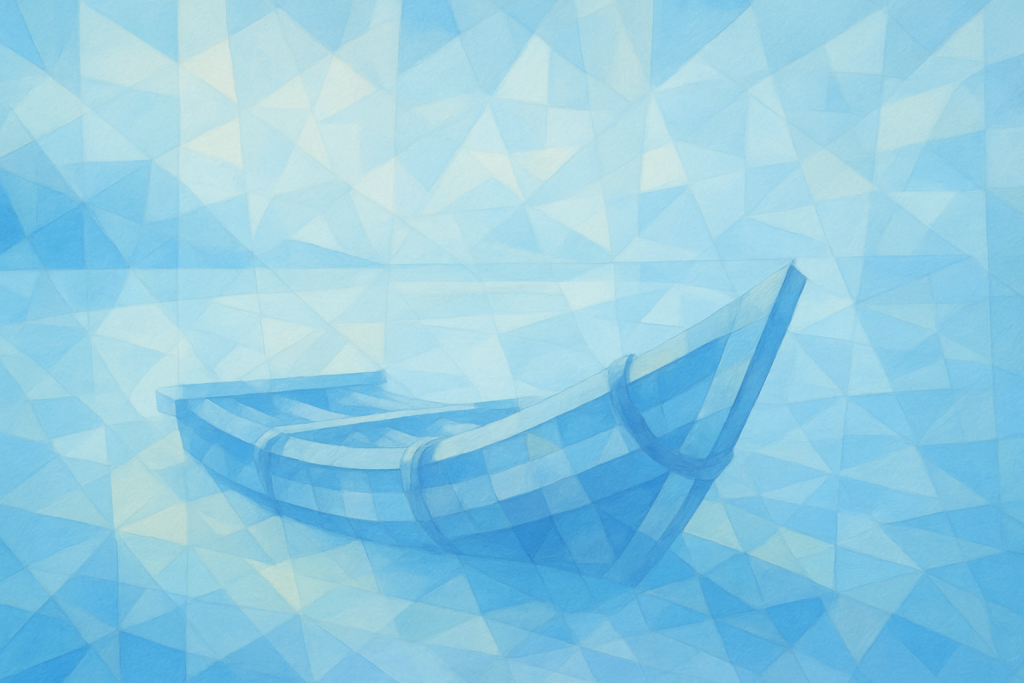Reading time: 8 minutes

Hi Friend,
I’m really glad you’re back. I’ve been excited for you to read this because I really want to tell you something that I hope will help.
You can call whatever you are feeling whatever you want. Some people call it a faith crisis which can be described as “a period of doubt or questioning of one’s beliefs, that often leads to feelings of confusion, grief, and a sense of disconnection from God or one’s faith community.”
I pulled that straight from a Google search, but it’s pretty spot on. The only thing I might add is that there can be a lot of pain, isolation, loneliness, even despair that comes from it. I’ve personally felt all of those.
For some reason, I could never bring myself to call it a crisis. I don’t know why. I didn’t know what to call it. I just knew that what once felt certain now felt…unsettled. I kept thinking, “If this is the truth, why does it feel so complicated?”
And every time I learned something new that contradicted long-held beliefs, it was like another knot in a ball of yarn, another thread unraveling, just as I was trying to wind it back up again.
What once felt neat and organized now felt tangled and frayed.
It took me a long time to find the right term for it all until I finally understood that I wasn’t standing in a crisis—I was walking on a journey.
I first heard it termed as a journey from Father Richard Rohr, a well-known Franciscan priest and author who has written extensively about spirituality. He often highlights that we are on a spiritual journey, and references the Hero’s Journey, the idea that most stories have a similar path to them (think Star Wars, Harry Potter, Homer, and now you.)
He credits this idea to writer and professor Joseph Campbell, who wrote about the idea of the Hero’s Journey we often find in literature and scripture. He describes how every hero (or heroine) hears a call that pulls them out of the world they once knew.
Sometimes, that heroine refuses it at first. They don’t want to leave behind what’s familiar. Who would? It’s uncomfortable here!
But eventually, they get called again and, reluctantly, they step forward into the unknown. And that’s when the real journey begins.
If that’s where you are, I hope you will accept it as a journey.
Why a journey? Because you’re going somewhere with this, wherever “this” is. And it’s yours and yours alone. No one else can take it for you. No one else will experience it exactly as you do. You might find people who have walked a similar path, and their stories might resonate. But in the end, this is your journey, and it will unfold in your way.
As I dug deeper into this concept, I found this quote by Joseph Campbell, who applied the Hero’s Journey to us in a way that excited me. He said, “We must be willing to let go of the life we planned so as to have the life that is waiting for us.”
Afterwards, I wrote in my journal, “The idea that I am on a journey is both enabling and empowering for me. It wasn’t really one I chose. And I realize now that I refused it for years until I could no longer ignore it.”
One of the ways this idea is enabling is in recognizing that to make this journey I can leave things behind. I always struggle with the urge to overpack for any trip. On this journey, I decide what to take with me.
The other way this is enabling is realizing that this isn’t just any journey, it’s an epic journey. It’s likely to last a lifetime as I figure it out. That somehow feels more interesting than sitting at home ‘enduring to the end.’”
I’ll probably never get back to a home that looked like it did before—fixed, certain, and unchanging, nor would I fit in that place. It’s good to visit, but it never quite looks the same.
Whatever has led you here, it may feel like a quiet feeling that won’t go away, for it is your calling to step outside of what you once knew. That can be terrifying. For a long time, I resisted. I told myself I had all the right answers, that I just needed to hold on tighter. But eventually, I couldn’t ignore it anymore.
The idea that this is a journey—rather than a crisis—has been freeing for me. It tells me I am heading somewhere and becoming something.
Of course, just because it’s a journey doesn’t mean it’s easy. I think that’s because it’s not about the destination as it is the act of learning as we travel. Melissa Inouye, who recently passed away after a long struggle with cancer, wrote,
“Trying to have a trouble-free life would miss the whole point of life. The purpose of life is to explore opposition and contrasts, and to struggle to love without pride or selfishness. Challenging and even devastating incidents are not a waste of time or effort because they stretch our experience to fit the reality of the cosmos as it really is.”[1]
As I wrote more in my journal about being on a journey, I made one realization about my journey: I get to decide what to carry with me. I don’t have to take everything. I can set things down. I can travel lighter.
Traveling lighter does not necessarily make the journey easier. No, I can testify of that through my own experience. The very fact that we have reluctantly gone down this path is because we knew that the journey would be hard. But traveling lighter does mean that you decide what to take with you.
I still remind myself of that today–I’m still on the journey, and sometimes I need to take something out of my backpack and leave it at the side of the road. At other times, I pick up something new and helpful to bring along.
Importantly, a journey is a great metaphor because it involves movement. It means growth. It means you, and I, won’t be stuck in one place forever.
It also means coming to accept that we may never return to the same home we left behind. When we go away and change, home doesn’t feel the same.
You’ve probably felt that if you’ve ever gone away, say to college or moving for a job, and left home. You changed with your new experiences. And because you changed, home felt a bit different when you came back.
The poet T.S. Eliot, who famously coined this in his poem, “Little Gidding”: “We shall not cease from exploration, and the end of all our exploring will be to arrive where we started and know the place for the first time.”
Maybe that’s part of the journey—not returning exactly to where we were but discovering something new. A home that is bigger, more expansive, fuller of love and grace. A place where we can be fully ourselves.
So, if you’re feeling lost, if you’re wondering where this road leads, just know this about your journey: It’s not a detour. It’s the path.
And I believe that where it leads will be worth it.
Journeys can be transformative. For us, and for where we call home.
If it all sounds scary, I can tell you that you can find comfort along the way. We’ll talk about that another time.
With warmth,
Your Friend
P.S. I am going to recommend some things to you that you may or may not want to read along the way. Here are three from LDS authors, and the one by Father Richard Rohr. There is no need to read all or any of them—this is a long list. This is your journey, so you take what you want with you.
You will find a much longer list of books and podcasts at the end of these letters for you to explore.
Planted: Belief and Belonging in an Age of Doubt by Patrick Q. Mason. This book addresses the challenges of doubt from an LDS perspective and offers encouragement for those navigating uncertainty
The Crucible of Doubt: Reflections on the Quest for Faith, by Terryl and Fiona Givens
This book explores how doubt can be a refining experience rather than a crisis. The authors present ways to reconcile questions with faith and offer historical and philosophical perspectives on belief.
Letters to a Young Mormon Adam S. Miller. This is a short, reflective book that provides a compassionate and philosophical approach to faith, doubt, and growth in an LDS context.
Falling Upward: A Spirituality for Two Halves of Life by Richard Rohr. I’d recommend this book to anyone as maybe the most important book to read for your journey. It shows us that falling down is the real path to finding up in our spiritual life.
[1] Melissa Inouye, Sacred Struggle
